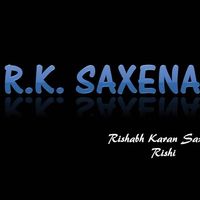Decentralised Web
 Rishabh K Saxena
Rishabh K SaxenaDecenpool & DWeb #rksaxena
Hi, as you may know, I am #rksaxena, being a crypto enthusiast I try to share the knowledge I have acquired about the crypto market and technologies related to it.
We are going to learn about Decentralised Web or DWeb as it is colloquially called. To know DWeb we should first understand what is the meaning of Decentralised.
Decentralised is a simple term that means control of anything given to multiple people.or authorities.
What is a Decentralised world?
Decentralization means the Internet is controlled by many. It's millions of devices linked together in an open network. No one actor can own it, control it, or switch it off for everyone. The Internet and the World Wide Web remain the biggest decentralized communication system humanity has ever seen.
DWeb connects the people, projects, and protocols essential to building a decentralized web. A web that is more private, reliable, secure and open.
DWeb would mean a web place that is not controlling or managing everything single-handed. When we share our information with anything on the web it is actually getting shared with the entire www or world wide web which means our personal information is never safe or secured. However, when we share our information with a DWeb-based website our information is safe and we become the decision maker as to whom our data and what kind of data is shared or what not or to whom not.
As we get to know DWeb, think of a hosting server being decentralised, definitely it would be of the highest degree of safety and security. Can a website be decentralized?
Decentralized Web Hosting is a way of hosting websites so that the website cannot easily be taken down or degraded by a service outage (intentional or not) of a given vendor. With this, we ensure that our information is reaching “ONLY” to the right person and the data is secured as well.
As per wiki “The decentralized web is a research program which proposes to reorganize the Internet using peer-to-peer infrastructure rather than centralized data hosting services. Interest in the decentralized web arose due to the lack of trust in network maintenance organizations, due to scandals involving widespread espionage and content control. Proposed mechanisms include decentralized identifiers and distributed ledgers.”
As per W3C (World Wide Web Consortium), our normal www is filled with identifiers that store information about a person, organisation, place or even position which can be mishandled. For your information, The World Wide Web Consortium (W3C) is the main international standards organization for the World Wide Web. Founded in 1994 and led by Tim Berners-Lee, the consortium is made up of member organizations that maintain full-time staff working together in the development of standards for the World Wide Web.
However the worst part is many web portals and some local search engines relate the decentralised technology only to the crypto or the pyramid schemes, which is entirely wrong. DWeb instead acts as a more mature, safe and people-derived protocol that ensures the integrity and rightfulness of the user remain intact and safe.
Andy Greenberg (Forbes 2011) & Tom Polansec (Reuters 2016) says “ A "cryptocurrency" (or cryptocurrency or crypto for short) is a digital asset designed to work as a medium of exchange wherein individual coin ownership records are stored in a ledger. A ledger is a form of computerized database using strong cryptography to secure transaction records, to control the creation of additional coins, and to verify the transfer of coin ownership.”
A Decentralized Identifier (DID) is a new type of identifier that is globally unique, resolvable with high availability, and cryptographically verifiable. DID’s are typically associated with cryptographic material, such as public keys, and service endpoints, for establishing secure communication channels. DID’s are useful for any application that benefits from self-administered, cryptographically verifiable identifiers such as personal identifiers, organizational identifiers, and identifiers for Internet of Things scenarios. For example, current commercial deployments of W3C Verifiable Credentials heavily utilize Decentralized Identifiers to identify people, organizations, and things and to achieve several security and privacy-protecting guarantees.
At a superficial level, a decentralized identifier (DID) is simply a new type of globally unique identifier. But at a deeper level, DID’s are the core component of an entirely new layer of decentralized digital identity and public key infrastructure (PKI) for the Internet. This decentralized public key infrastructure (DPKI) could have as much impact on global cyber security and cyber privacy as the development of the SSL/TLS protocol for encrypted Web traffic (now the largest PKI in the world)
After going through the above details I am sure many of you would have clarified in detail about the technology and what the future of the safe and encrypted world web would be.
To make it simpler for many of us who wish to get the picture cleared in just minimum reading, the world web is full of protocols that make the information of users available to the entire world however when we use DWeb the same data is taken aback, and made available to only specific set or group of users, with the same its in the hand of the user to plan about the information, the information provider plans what information and to whom shall it be provided. The entire DWeb works in highly encrypted mode, which is the reason the entire packets of blockchain are transferred through the DWeb.
DWeb makes the safety high, this makes it all the more reason for the Crypto Market to use it for its operations. The future of the entire encrypted market revolves around the DWeb.
#rksaxena , #9145733744, rishi.rishabh71@gmail.com , #rishabhsaxena #decenpool , #upcomings, #dao, #dapp, #bitcoin, #rishabhksaxena
Subscribe to my newsletter
Read articles from Rishabh K Saxena directly inside your inbox. Subscribe to the newsletter, and don't miss out.
Written by
